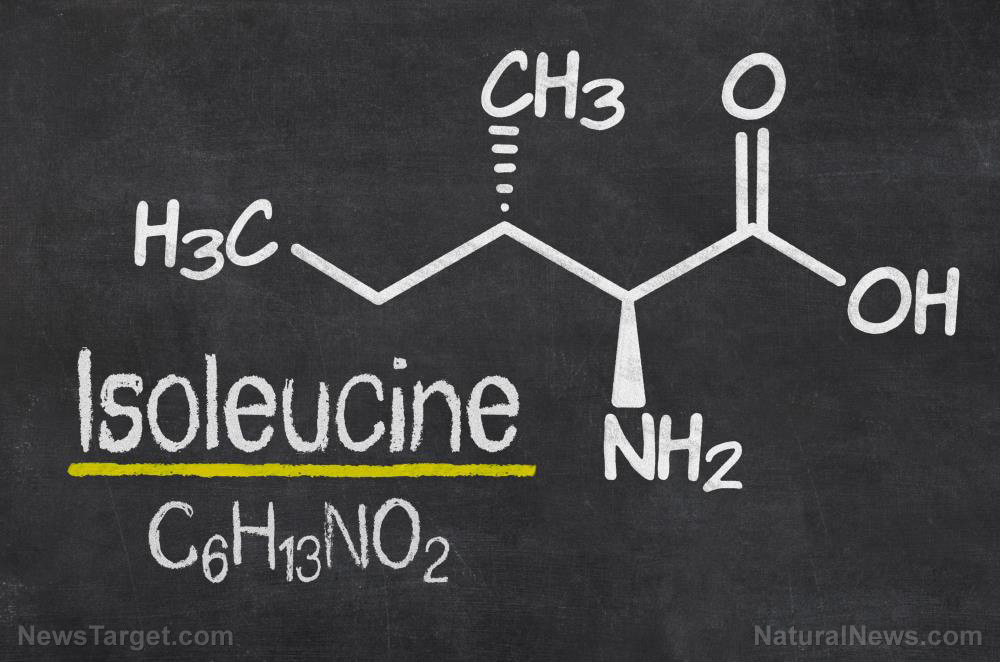Selenium deficiency signs and symptoms: Are you getting enough of this anti-cancer mineral?
11/02/2018 / By Russel Davis

Selenium is one of the most essential minerals that improve the body’s overall health. With its many health benefits, it is a big question why this powerful antioxidant never gets its well-deserved recognition, as well as the risks associated with inadequate selenium intake. Many people may not be aware that consuming foods grown in selenium-poor soil, as well as certain digestive and intestinal ailments like celiac disease, may contribute to selenium deficiency. Here are few signs and symptoms that you are not getting enough selenium:
- Compromised immunity — Selenium is essential for the immune function. The nutrient is also important in the production of a potent antioxidant called glutathione peroxidase. People who lack selenium may experience low immunity. Experts recommend taking selenium supplements when nutrient levels are not enough.
- Exhaustion and fatigue — Experts noted that while constant fatigue has a lot of causes, unusual lethargy and exhaustion may also be associated with selenium deficiency. It is advisable to seek medical attention at the event of unusual fatigue.
- Poor focus and memory — Selenium is an important nutrient that promotes better brain health. Experts noted that short- and long-term memory issues as well as reduced focus may be tied to selenium deficiency.
- Slow healing — Wounds and bruises that do not heal fast could serve as red flags for inadequate selenium levels.
- Chronic cold or flu — Selenium is essential for building up the immune system. Low selenium levels may compromise the immune system, which renders people more susceptible to chronic colds and flu.
- Infertility — The nutrient is especially essential in promoting fertility for both men and women. Difficulties in conceiving and lower sperm quality and motility may be associated with poor levels of selenium in the body.
- Hair loss, discolored skin, nails — Skin discoloration and heavy whitening of fingernail beds are common signs of inadequate selenium intake. Hair loss is among some of the most severe symptoms of nutrient deficiency.
- Hypothyroidism — Like hair loss, hypothyroidism is also a more severe symptom of selenium deficiency.
This is why adequate selenium is important
Selenium is an important trace mineral that promotes better cognitive function and healthy immune system. The nutrient is a powerful antioxidant that works in conjunction with vitamin B3, vitamin E, vitamin C, and glutathione to inhibit free radical damage in the body. The essential mineral is also found to be especially beneficial in promoting fertility in both men and women. The nutrient is known to improve sperm cell motility in men. Selenium supplementation was also found to alleviate asthma. Perhaps the best known benefit of selenium is its potential in cancer prevention.
A German study published in Medizinische Klinik revealed that selenium supplementation led to a significant reduction in cancer incidence and mortality. To carry out the study, the research team examined more than 1,300 patients with histories of basa/squamous cell carcinomas who received either a selenium supplement or a placebo. “Results showed that Se-supplementation…was associated with reductions in total cancer mortality and in the incidences of lung, colorectal, prostate, and total cancers. These effects were consistent over time and between study clinics. The results strongly suggest benefits of Se-supplementation for this cohort of patients and support the hypothesis that supplemental Se can reduce risks to at least some types of cancer,” the researchers wrote.
Another study published in the Chinese Journal of Preventive Medicine showed that patients at risk of liver cancer who took selenium supplements displayed improved blood selenium concentration and glutathione peroxidase activity compared with the controls. The researchers also found that the supplement group had reduced prevalence rate of micronucleus cells in peripheral blood lymphocytes. In addition, the rates of new liver cancer cases were significantly lower in the treatment group compared with the control group, the researchers added.
Sources include:
Tagged Under: anticancer, hair loss, hypothyroidism, Liver cancer, nutrient deficiency, nutrients, nutrition, selenium, supplements




















